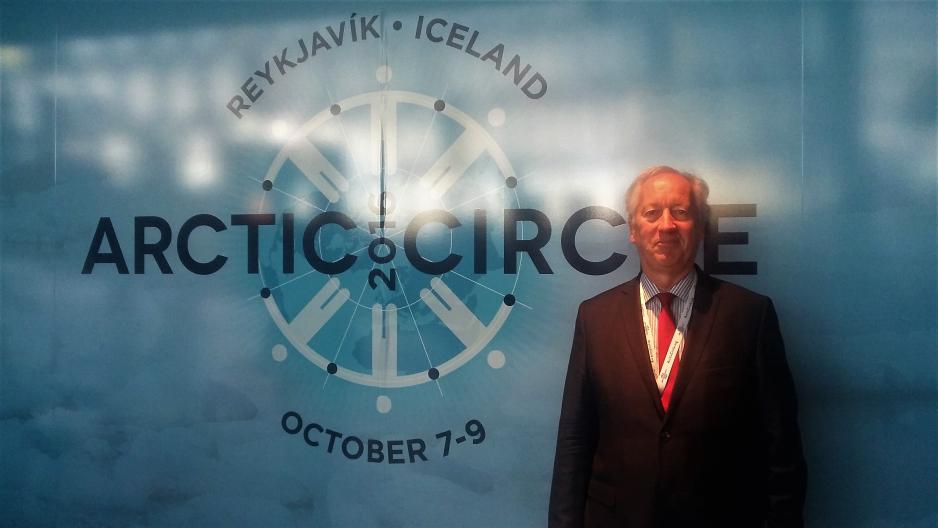The Dutch Beef up their Arctic Engagement

Last year, for the first time ever the Dutch have appointed an Arctic Ambassador, expanding on an already growing and historical interest in the region.
The Dutch have a long history in polar involvement, even though the nation is not geographically near anybody’s definition of either the Arctic or the Antarctic. However, once again they have signaled their interest in the region, this time by appointing their first ever Arctic Ambassador, Mr. Kees Rade.
This position, which was introduced last year, follows on the 2015 report that the Advisory Council on International Affairs was requested to produce for the Dutch government as well as a the “Strategic Polar Plan 2016-2020”.
The current Dutch engagement in the Arctic is based on several facets, including the implications of climate change, its ecological impact worldwide, sustainable development of the North and economic opportunities.
Traditional Dutch Engagement in the North
Although the Dutch are not an Arctic nation, they have a long tradition of engagement in the region. This stems back to the late 1500s where Dutch explorers "discovered" many of the Arctic islands, including Spitsbergen, the largest island of the Svalbard archipelago. As fishers, the Dutch have long been involved in whaling and cod-fishing in the region. However, the Dutch are now firmly opposed to whaling.
Another important economic sector, which has huge potential Arctic implications for the Dutch, is shipping. Historically, Rotterdam was one of the largest ports in the world and continues to be the largest port in Europe, with many goods filtering from Africa and Asia through the Netherlands and disseminating into the rest of Europe.
If the Northeast Passage opens up, this will have huge implications for the Netherlands, solidifying Rotterdam’s importance in the future of European shipping. Yet, in the immediate future this is not a concern for Dutch policy, as Ambassador Rade said in an interview with HNN, "there is not an extreme sense of urgency yet but as soon as we feel that it is starting to move- intensified shipping possibilities- we will be there from the start."
Current Challenges
The current engagement in the Arctic is based, as Ambassador Rade emphasized, on three focus areas: climate change and the effects thereof, the Arctic ecosystem specifically the migration of Arctic birds, and social, economic and geopolitical implications of change. Each of these areas have a tie to either the overarching domestic or international policy of the Netherlands. There is also specific interest with regards to the rights of Indigenous peoples, as the Netherlands is one of the only countries in the world to have ratified the ILO Convention on Indigenous Rights.
The implications of climate change are clearly important to a country with approximately one third of the country, where two thirds of the population lives, below sea level and therefore at risk of flooding. Even a small rise in the world’s oceans can have drastic implications on the country. So the role that the Netherlands plays in international climate change negotiations and regulations directly relates not only to the domestic policy but the very existence of the country.
Many people may not know that Arctic birds migrate south through the Wadden Sea and its islands (which are in the Netherlands) during the winter. This means that the Dutch, as Ambassador Rade said, "feel a very specific responsibility" to the birds and the ecology of the North. Furthermore, according to the Ambassador, the Dutch have many ornithological experts whose knowledge is consistently being used to ensure the protection of these wild birds.
As for the social and economic changes in the region, the Dutch are well aware, according to the Ambassador that they are observers and that the, "Arctic is primarily the responsibility of the countries around the Arctic, that are part of that region." However, the Dutch also strongly believe in the multilateral cooperation of the Arctic Council; they are in fact one of the oldest observers to the Arctic Council. The Dutch are currently active in three working groups, AMAP, CAFF and SDWG, and Ambassador Rade mentioned they are considering joining a fourth, PAME.
Finally, oil and gas development is also a potential interest when it comes to the Netherlands in the Arctic. Royal Dutch Shell is one of the major oil and gas companies in the world, and is headquartered in the Netherlands. However, when asked about oil and gas development in the Arctic, Ambassador Rade said that "when it happens, it should be done in a sustainable and precautionary way."
Increased Research in the Area
The Netherlands recognizes the importance of research in the future of the Arctic region. This is why they are pledging 4.2 million euros a year until 2020. Ambassador Rade mentioned that, "although our research program is modest, its impact is significant: Dutch polar research publications get the most quotes per article, so in terms of impact we rank number one in the world." The Dutch public is often exposed to the region, specifically with so many different Arctic actors based in the Netherlands. Greenpeace, for example, has their international coordinating body in Amsterdam. With organizations such as Shell and Greenpeace both situated in the country, the Dutch public can easily be engaged.
The Netherlands has worked hard with Arctic nations, including Norway, who Ambassador Rade emphasized was an important partner. The major theme throughout the Dutch policy in the Arctic is similar to Dutch policy in general, multilateralism and cooperation. The present, the past, and most importantly the future of the Dutch engagement in the Arctic will likely revolve around these two themes and the sustainability of Arctic activities, regardless of the focus on shipping, port development, oil and gas, scientific research or anything else.
